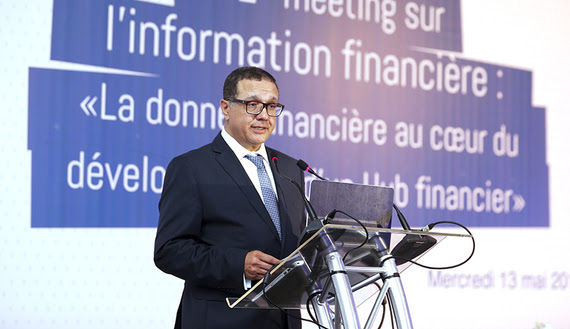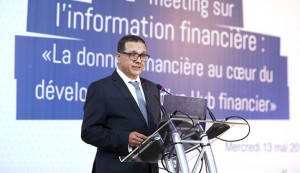Al Monitor
Joseph Hammond
Contributor
Nearly two months after its parliamentary elections, Morocco has not yet assembled a governing coalition. Meanwhile, its economic problems are piling up and causing anxiety among American and European investors.
The gross domestic product (GDP) in the North African nation was $100 billion in 2015, an almost 10% decline from $110 billion in 2014.
The long-term economic trend has not been positive. Morocco’s GDP is slightly lower today than it was in 2011, when the ruling Justice and Development Party, an Islamist party, won a plurality in the national elections and built a governing coalition with smaller parties.
The economic downturn was partly caused by a drought last year that reduced farm production in an economy where agriculture accounts for about one-third of economic output.
Tourism, a major source of foreign currency, is down 5.6% over the first half of 2016 compared with 2015. Tourism and agriculture woes have contributed to an unemployment rate of 10%.
Even earnings from phosphates, which are usually an economic bright spot for Morocco, have declined roughly 26% in the past year. Morocco has the world’s largest phosphate reserves.
The economic stagnation is wearing on Moroccan voters. The Justice and Development Party (PJD) won re-election with a plurality of votes in the recent election. It is expected to form Morocco’s next government. But negotiations among the parties have been stalled by horse-trading and clashing personalities.
Prime Minister Abdelilah Benkirane, who also leads the PJD, has struggled to provide economic growth. This is the second time that Benkirane was forced to create a new Cabinet. The first shake-up occurred in 2013, when his coalition unraveled. He then saved his government by recruiting the more free-market-oriented National Rally of Independents (RNI) into the governing coalition. In exchange, the RNI was given several important ministerial portfolios, including finance, which it awarded to Paris-educated Mohamed Boussaid. “By being in a coalition government with the PJD, we have tried to improve the economic situation,” Boussaid said. “In 2013, when I took over, the International Monetary Fund was very angry with the government. The PJD had pledged in 2012 that we would make a deficit target of 5.5% of GDP. In January 2013, when it was 7.2%, they were not pleased.”
Nevertheless, it doesn’t appear that the RNI is willing to join the Islamists in forming a new government.
“I’ve had Prime Minister Benkirane here in this very office, and my sense in talking to him is that he is an economic liberal at heart,” Boussaid said of his decision to become minister of finance and economics. “I don’t think that’s the case with most of the PJD leadership, which doesn’t really have any knowledge or interest in economic issues.”1
Morocco’s deficit dropped to 4.3% of the GDP in 2015. Government debt is 64% of GDP, a large figure for a developing country and an amount that Morocco will struggle to pay down.
Boussaid oversaw a period in which the current account deficit, money owned by the kingdom of Morocco, was reduced by 75%, from 9.2% of GDP in 2012 to 2.3% in 2015.
Morocco’s previous government had approved a plan to abolish fuel subsidies, but the move proved unpopular, and the government postponed plans to implement similar reforms of food subsidies.
The RNI has indicated it is not willing to join in a new PJD government due to ideological differences. Boussaid told Al-Monitor he is unlikely to join the government as an independent.
Boussaid has earned grudging praise across the Moroccan spectrum. “Yes, we can say Boussaid has done a good job,” said Ilyas El Omari, governor of the Tanger-Tetouan-Al Hoceima region, the northernmost in Morocco. “But in the context of a PJD-led government, his efforts to improve the economy are like pouring water into sand.”
Not all of Morocco’s economic news is negative. The French car maker Renault, which already has two plants in Morocco, announced plans in April to invest $1 billion more in the country. Ford opened a buying office in Morocco. Peugeot Citroen will open a factory in Morocco by 2020. Moroccan officials say that the country will become the world’s 19th-largest automotive producer by 2017. Earlier this year, Boeing signed a deal to develop an industrial zone near Tangier, where as many as 120 Boeing suppliers and subcontractors are planning to operate.








